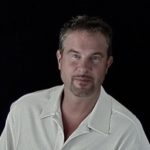Episode 32

Keith Kurlander, MA, LPC
Keith Kurlander, CEO of Higher Practice, explores the intricacies of working with clients who present with highly complex mood disorders. Often it’s assumed that it will take years to help someone out of a serious treatment-resistant form of anxiety, depression or bipolar state, however, there are a number of interventions that can have a great impact, especially if they haven’t been tried before.
Keith will discuss specific sleep hygiene techniques such as supplement cocktails, blue-light wavelength sensitivities, regulation of temperature, and exercise routines to combat hyper and hypo-insomnias. He presents an overview of the Adverse Childhood Study performed by Kaiser and its relevance to complicated clients, and also covers innovative interventions that most clients haven’t tried.
Most importantly, he presents a framework for the psychology of the stuck client and how to work with it.
Episode 31

Christopher Lowry, Ph.D.
Dr. Chris Lowry explores his cutting-edge research on the interplay between the diversity of microbiome in the gut, and mental and physical health. He is currently researching an injectable form of M. vaccae, which can act as an inflammatory reducing agent in the body, in turn, reducing symptoms in conditions such as PTSD. He points out how living in overly-sterilized nations reduces our exposure to “old friends” and what this means for the future of our health.
Due to a decrease in exposure to a diversity of microbiome found in soil, plants and animals, people’s overall physical and mental health are compromised. Often, medicine addresses illness in a reactive manner without treating the underlying condition. Psychiatric symptoms are no different. One place that is often overlooked is the gut and its interplay with the mind. Dr. Lowry is going to explore this interplay, as well as offer some tips on how to address this issue in a simple manner.
Episode 30

Keith Kurlander, MA, LPC
Keith Kurlander reveals his personal story about drinking the psychedelic Ayahuasca in Ayahuasca churches in the US and abroad. He explores why the use of this medicine is gaining traction across the world, but also the cautions of where things can go wrong. Keith will describe how this “medicine” potentiates both healing and illness in the individual user through the mechanisms of presence and dissociation.
This is the second episode on the use of Ayahuasca. As a psychedelic, Ayahuasca use is spreading rapidly, and, therefore as clinicians it is important to have a basic understanding of its implications. The concept of presence and dissociation is often overlooked when discussing the use of psychedelics. One way in which psychedelics act is by dissociating the user from their baseline associations with reality. In this manner, dissociation can expose the user to aspects of their subconscious that are normally obscure.
However, this is a cautionary tale. Dissociation is a powerful mechanism in the brain. One of its main biological functions is psychic protection. In this episode, Keith will explore the possible protective aspects that occur through psychedelic dissociation on Ayahuasca and why it’s so important to integrate any psychedelic experience fully. Any psychedelic experience that hasn’t integrated runs the risk of deeply fragmenting the psyche.
Episode 29

Keith Kurlander, MA, LPC
Keith Kurlander, CEO of Higher Practice, goes into the details of 3 productivity habits that transformed his productivity and mindset. These relatively simple practices are fairly easy to put into place and can literally change the way you practice counseling, grow your business, and achieve stable mindsets for a highly productive day.
Productivity and efficiency are often terms that show up in corporate America or the coaching culture. Rarely, do we discuss these terms in therapy circles in regards to mood stability and mental health. However, productivity habits when done “right” often minimize negative coping patterns that result in addictions, dependencies and mood fluctuations. When productivity is defined as engaging in tasks that are most meaningful and purposeful we can “hack” our behaviors to optimize our brain to stay on task in a clear and balanced way.
In this episode, Keith shares 3 productivity hacks that has helped him stay on task, focus with more clarity as a clinician, and achieve as a mission-oriented entrepreneur. By using these hacks for yourself or your clients, you can also achieve more results in less time while feeling energized at the end of the day.
Episode 28

Keith Kurlader, MA, LPC
Keith Kurlander, CEO of Higher Practice, talks about his experience of working with therapists across the world and why there is a fee ceiling in private practice. He discusses why many therapists choose to also pursue a career in coaching as a way to no longer have a fee ceiling that often doesn’t reflect the value of their services.
Coaching is a natural extension of therapy. It offers many techniques to getting short-term results with clients that are sometimes difficult to achieve in depth psychotherapy and even CBT models. In addition, high performers often gravitate toward coaches over therapists to achieve their goals in areas of their life such as career, finances, relationships, and mental and physical well-being.
In this episode, Keith breaks down the details of why so many therapists are making this transition, how it is advantageous when working with clients nationally and internationally, and ways of overcoming the fee ceiling in the one-on-one therapy model.
Episode 27

Ted Usatynski, MA
In this episode, Ted Usatynski talks shop about the overlap between spirituality and trauma. Many seekers often describe themselves as having adverse childhood experiences, as well as more acute traumatic experiences. However, they also describe having a natural aptitude for peak mystical experiences and non-ordinary states of consciousness. Ted is going to explain the brain science about why this overlap exists and what we can learn from such a mysterious confluence.
If you’ve been in communities that teach intensive spiritual practices such as breathwork, meditation, and trance you probably know that you’ve met some people that have been through very difficult things in their lives. You may even be one of those people.
Ted is going to go into detail about dissociation, trance, non-ordinary states and the brain science behind it all. He will break down how different areas of the brain gets activated during these events and why many trauma survivors have a propensity for the spiritual realms.
Episode 26

Emma Derman Teitel, MA, LPCC
This episode comes at a time where the #MeToo movement has allowed so many women to step forward, speak their truth, and tell the stories of how men abused their power. That individual and collective voice is necessary for society to heal and evolve, which, in turn, can lead to more equality and safety.
Mental health professionals have heard these stories in their offices for many years. The storytelling is one important component of healing in a therapeutic context. However, often a much deeper inquiry and investigation into perceptions, traumas, and core beliefs must also happen for a sense of inner power and authority of one’s life.
In this episode, Emma Derman Teitel talks about a truly empowering approach to feminist psychotherapy and helping women overcome internalized patriarchy. It’s often easy as clinicians to simply listen to stories that need to be told by women and stop there. However, a combination of support and challenge is needed in order to help a woman regain her inner power and bring forth her deepest gifts.
Keith Kurlander, CEO of Higher Practice, reveals for the first time publicly a powerful story about his experimentation with psychedelics in college and how they led to a serious Bipolar diagnosis. This sent him on a personal and spiritual quest to find a solution to this disorder. What he found along the way was completely unexpected and ultimately freeing.
Psychedelic use is not typically discussed at length in our graduate programs and clinical training institutes. There is a lot of cultural taboo around the subject and mental health professionals are not immune to this problem. However, many clients have experimented with psychedelics and report both extraordinary insights as well as profound nightmares.
In this episode, Keith will discuss his own experiences with psychedelics with a focus on how one experience in particular led to the manifestation of mental illness. He goes on to dispel the myth that the psychedelic itself surfaced a budding mental illness. It actually surfaced something much more profound that took years to identify.



















